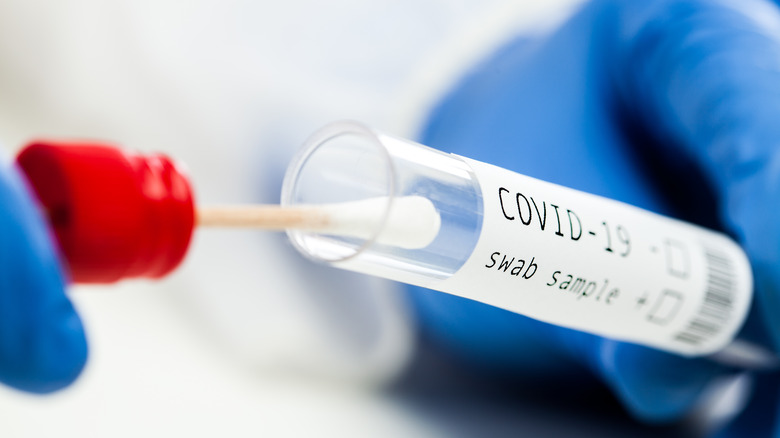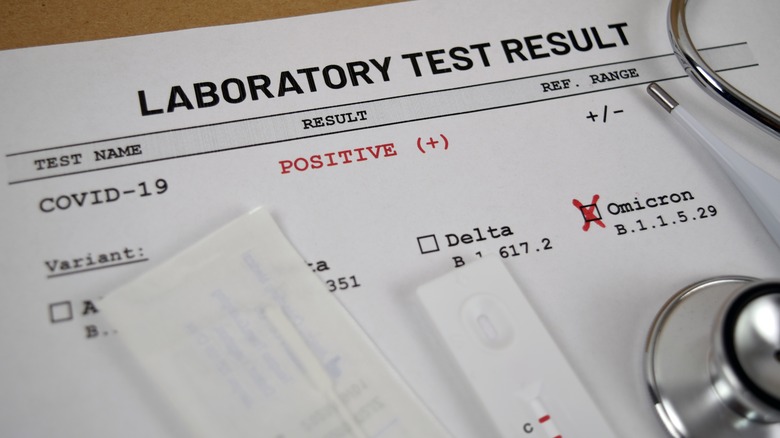The Real Reason COVID-19 Tests Can't Tell You Which Variant You Have
A polymerase chain reaction test, or PCR test, is an effective means by which to detect the presence of the COVID-19 virus by gathering an upper respiratory sample from the patient (via Cleveland Clinic). Known for their accuracy, PCR tests can pick up on both small and large traces of the virus' genetic material.
With COVID-19 symptoms often resembling those of other illnesses such as the common cold, experts stress the importance of testing to determine whether or not the cause may be due to COVID-19 infection. Infectious disease specialist and chief hospital epidemiologist at University of Chicago Medicine Emily Landon tells NBC Chicago that variants can cause further confusion when it comes to symptoms, stating, "The trick is you're not going to be able to tell the difference between omicron, delta, lambda, [or] plain COVID from the beginning."
By simply noting your symptoms, she says, "You're just not going to know, especially at the beginning of an illness, what kind of illness you have. You have to get tested."
So while symptoms may not be a clear indicator of which variant a person has, why is it that tests can't provide us with that information instead?
Only certified labs are authorized to release variant test results
To determine the presence of a specific variant, scientists must utilize a process known as genomic sequencing — a tool used for tracking the development and mutations of the COVID-19 virus (via Verywell Health).
University of Washington School of Medicine instructor Pavitra Roychoudhury told Verywell Health that "The vast majority of sequencing has been done for surveillance purposes. You're taking random snapshots from the population, and sequencing, and seeing what's there—as an indication of what might be circulating in the population."
However, sequencing results are strictly withheld from healthcare practitioners and patients unless the lab is certified under the 1988 Clinical Laboratory Improvement Amendments (CLIA), according to Verywell Health. Dr. Emily Landon further explains via NBC Chicago, stating, "When you get a COVID test they're just looking for whether or not you have COVID." To determine the variant, she said, "You have to do this thing called sequencing, which takes a lot longer. It's much more intensive. You certainly can't get that back in 24 hours, and it's only done by specialized labs."
In addition, experts feel that providing patients with variant-specific test results ultimately doesn't change the manner in which they manage symptoms (via Verywell Health). In regards to COVID-19 infection, the U.S. Centers for Disease Control and Prevention (CDC) guidelines regarding isolation remain the same across all variants.


